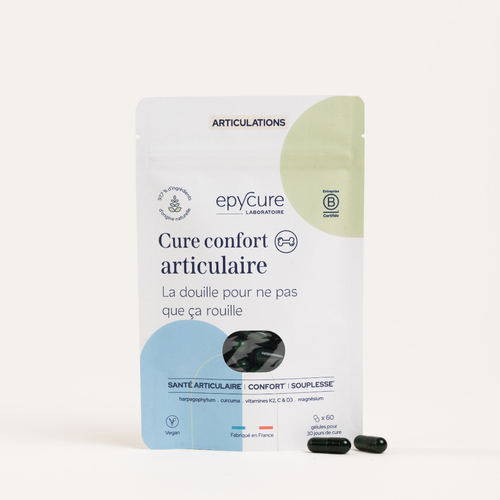Your joints play a vital role throughout your life. Whether you have a sedentary or active lifestyle, joints are always under stress. Angélique gives you information on the link between joint problems and the intestinal ecosystem.
1. Update on intestinal toxins
The new hypotheses assume several links between these pains and the state of the intestinal flora. This is more or less permeable and it is this which could allow certain types of toxins to pass through it. When undigested elements are found in the blood, our body 's immune system detects them and activates its natural defenses. These will then seek to eliminate the toxins. It is for this purpose that the antibody will somehow unite with the antigen. This union will give rise to a complex whole which will continue its circulation in the body . Throughout its journey in the blood, this set of cells can lodge in certain places in the body, including the joints, and cause pain.
2. The link with joint pain
Other studies have been carried out in an attempt to prove the existence of a link between the intestines and the joints. This was already the case in the 20th century when studies established a link between joint pain and the intestinal ecosystem. The theory is as follows: the imbalance of the intestinal ecosystem can lead to the birth of an infection. The joints, because of their sensitivity, react to these infections; this has the effect of causing pain in other joints.
The link between diet and joints also concerns the nature of your diet . It has been proven that a diet that is too acidic, high in fat and sugar can lead to joint pain.
How to recognize joint pain?
Muscle pain can appear during exercise: when it is damaged, the muscle will only react when it feels stimulated. When resting, you will feel little or no pain. Muscle pain makes it very difficult to handle the injured limb (diagnosis made during an x-ray) over a period of time that varies depending on the severity of the trauma. This can last a few seconds in the case of a cramp, morning stiffness or several months for a strain or strain. To ease the pain, you can go to your doctor so that he or she can perform a massage and soothe the pain.
Here are the different pathologies of joint pain, often linked to trauma.
- Osteoarthritis: Osteoarthritis is a rheumatism that affects the joints. Osteoarthritis is due to the destruction of the cartilage located at the bone ends forming the joint.
- Arthritis: Arthritis is an acute or chronic inflammation of the joints. It does not designate the pathology listed under the name osteoarthritis, but a clinical sign associated with many joint diseases.
- arthralgia: arthralgia is a condition characterized by pain and inflammation of a joint and surrounding tissue.
How to relieve joint pain?
Physical activity is associated with greater cartilage volume. In addition, it strengthens muscles and bones, thus preventing joint degeneration. The movement also releases a lubricating protein into the synovial fluid that protects the cartilage. As always, pay attention to the dosage. Overtraining and, above all, the accumulation of injuries, can accelerate cartilage damage. So listen to your body's signals.
Beyond physical practices, there are natural ingredients you can rely on to relieve joints.
- Nettle leaves have been used since ancient times for their known benefits on joint mobility and flexibility.
- Turmeric, ginger and even flax help relieve joint pain and also have anti-inflammatory properties.
- Harpagophytum is a plant nicknamed devil's claw. It is often used in traditional medicine. Very popular with athletes, it relieves minor joint pain. You can find it in our personalized cures.
To find out exactly what your needs are, come and answer our questionnaire. It will allow you to know exactly what vitamins, minerals and plants you need.



